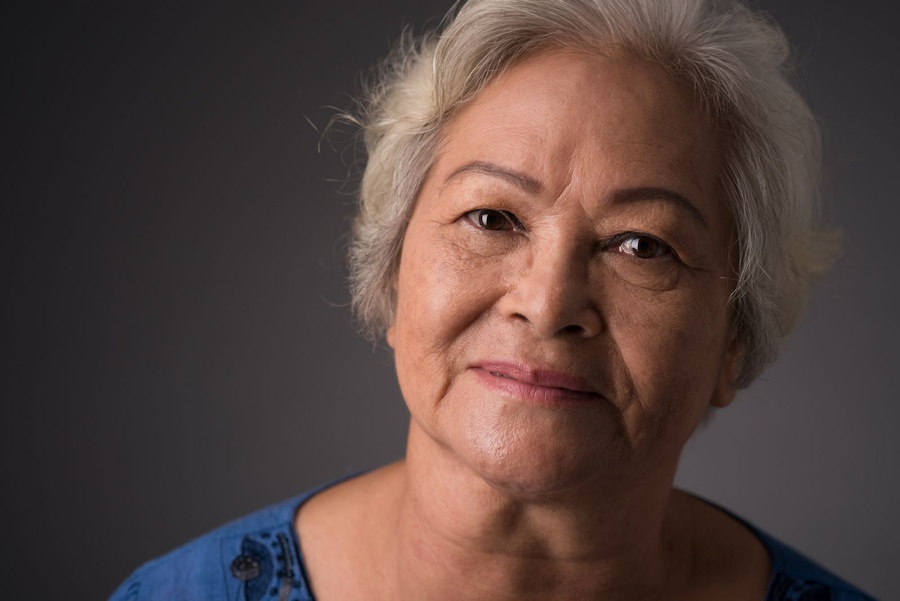
Post-Traumatic Stress Disorder Symptoms May Wait Until Later in Life
Most people know what it feels like to be in a situation where they feel in danger or fear for the safety of a loved one. You are very fortunate if you have never gone through something that has caused you to feel at risk, threatened, and/or vulnerable. You are also very fortunate if you have faced a significant trauma in your life and been able to move on in life without carrying damaging effects with you.
For people with post-traumatic stress disorder (PTSD), the impact of a traumatic event becomes a persistent influence in their lives. They continue to feel frightened and distressed or experience reoccurrences of those feelings after the traumatic event is over, even though they are no longer in peril. Many people with PTSD have difficulty sleeping and endure disturbing dreams. Some experience flashbacks, during which they relive the traumatic event. Some have difficulty controlling their emotions. Some are easily panicked or alarmed. Some find it hard to bond with other people.
PTSD Knows No Age Limit
Symptoms of posttraumatic stress disorder can occur at any age, from childhood through “old age.” They may begin within a few months of a traumatic event or months, years, and even decades afterward. Even if an incident happened in childhood or young adulthood, symptoms of PTSD may not emerge or escalate until the later years of life. This does not mean the person had not been living with any negative impact from the trauma. More likely, it means the individual found a way to manage or mask his or her symptoms.
Many trauma survivors are able to hone effective survival and coping skills that may work well for quite some time but may be difficult to continue into their later years. These individuals may keep their painful memories and symptoms at bay by engaging in a busy lifestyle and keeping their minds heavily engaged in other things. However, staying busy and having lots of things going on to occupy your thoughts is a coping strategy that can become less and less feasible or attainable during later years.
If you stop to think about how significantly our lives can change as we get older, it is easy to understand why the symptoms of PTSD might become more evident in later years for trauma survivors who have functioned without obvious problems throughout most of their lives. The strength, resilience, and coping strategies that served these individuals so well in youth may simply not last into their later years.
Some older people have medical conditions, physical limitations, and cognitive issues that stop them from staying as active or busy as they were in younger days. Many live on a reduced income that places further restrictions on their lifestyle. Many experience the grief of losing loved ones and friends. Many have far less opportunities to socialize. As a result, aging folks may have more time to think about the past and feel the pain and fear that may have always existed somewhere below the surface.
There is evidence that PTSD in older people can add further difficulties to the typical challenges of aging. Research has shown that PTSD can lead to chronic health problems in later life, as well as functional difficulties and mental health problems. In fact, one recent study by investigators from the University of California, San Diego, suggests that PTSD may actually accelerate aging. The study, published in the American Journal of Geriatric Psychiatry in May 2015, identified a potential link between PTSD and a number of biological processes that could lead to faster aging.
PTSD is Nothing New
PTSD has been around since the dawn of time, but the condition did not begin to receive the attention it deserves until more recent years. For a long time, the symptoms of PTSD were primarily associated with military veterans and often referred to as “shell shock” or “combat fatigue.” However, traumatic events are not limited to people who have seen and experienced the atrocities of war. Trauma is a far more common occurrence than many of us realize. PTSD can become a reality for anyone who has been through trauma of any kind.
Any incident that is especially frightening, upsetting, or dangerous and leaves a negative, lasting impact on someone has the potential to lead to the development of PTSD. People with PTSD symptoms may have experienced physical, verbal, emotional, or sexual abuse in childhood or adulthood. They may have been through a natural disaster, such as an earthquake, hurricane, tornado, flood, or fire. They may have been the victim of, or witness to, a violent or nonviolent crime. They may have been involved in a life-threatening or frightening accident involving a car, plane, bicycle, motorcycle, train, boat, or any other form of transportation. They could have been severely bullied, harassed, or intimidated.
For now, the worlds of medicine and science have no pat answers as to why one person will develop PTSD while another will not or why its symptoms may take years to surface. Researchers continue to study PTSD. Scientists are looking at the role genes may play in how memories related to traumatic events are formed and how brain processes relate to feelings of fear, panic, and stress.
If you think you, or someone you know, may be experiencing PTSD symptoms, please speak with your doctor. It may not be easy to talk about your difficult memories or your reactions to them, but it is important to find a medical professional with whom you feel comfortable discussing the subject. Help is available. Please reach out for it.
Symptoms of PTSD
Symptoms of PTSD can mirror or overlap with those of other mental and emotional health issues, like depression and anxiety. The following are some of the more common signs and symptoms of PTSD. Experiencing one or more of these symptoms does not mean you are suffering from PTSD. However, please see your doctor if you are concerned.
- Avoiding people, places, and things that may stir up memories of a traumatic event and/or trigger disturbing feelings and thoughts associated with it
- Experiencing unprovoked negative memories, feelings, and/or sensations related to a traumatic event or time of life
- Being jumpy or on edge much of the time
- Startling easily to unexpected sounds, sights, or events
- Feeling aggressive, angry, or sad often without reason or provocation
- Seeing images and/or experiencing flashbacks that make it seem as if a past traumatic event is happening again in the present
- Repeatedly dreaming or having nightmares about an event itself or including disjointed images or sounds related to the event
- Remembering only bits and pieces of a traumatic event and being left with large blank spaces about what happened
- Finding it difficult to stay positive or hold onto positive emotions while negative feelings – like worry, guilt, sadness, and fear – are hard or impossible to let go of or avoid
- Sensing you are somehow different than and disconnected from other people and feeling withdrawn and isolated as a result
- Suffering with numerous physical ailments that seem to have no direct cause, such as headaches, dizziness, nausea, pain, sweating, or stomach and digestive issues


Age Adds Flavor
We are not old, we are seasoned!
Don’t forget to visit us on FACEBOOK!
